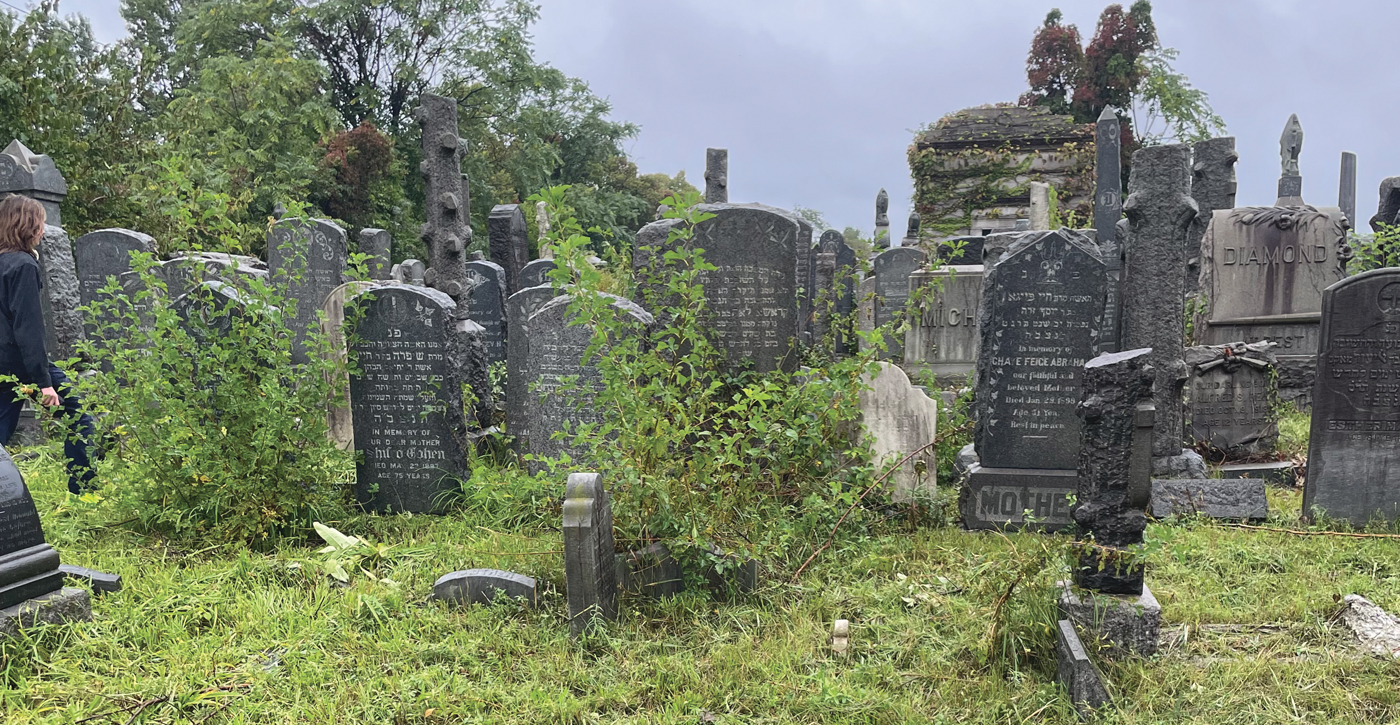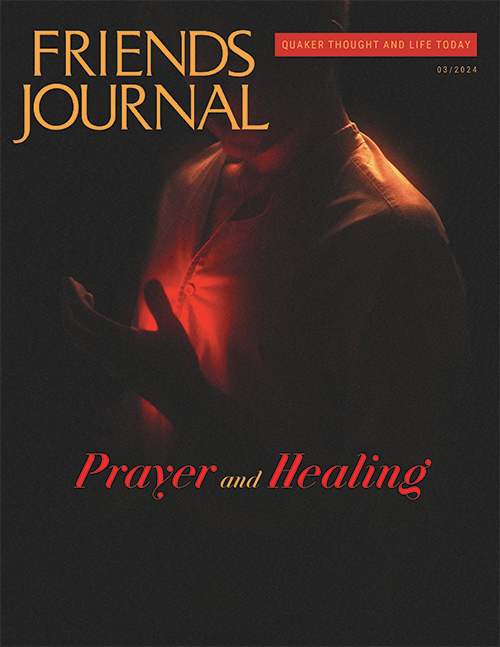Fingering the small, smooth stones
in my bag, we ride the subway to Queens,
exit at Mokom Sholom, Place of Peace, the final
stop. Rain falls as my grandson Josiah dials eighty-three,
then eighty-four on the rusted combination lock.
Surprising Samuel, his grandfather, and me, it snaps open.
Stepping into the ancient cemetery, overgrown rows
of headstones, we are surrounded by Hebrew names.
A massive maple, so old it carries headstones tangled
in its roots. Josiah has queried about ancestors since
he could speak, hungry for stories of great-great-
grandparents. They would shudder at our unorthodox
Sabbath quest.
Dark stones speak in timeless language, lean toward
us as we scramble around. Eyes focus, search for Mier
James and Roxanne Maren, who preferred less Hebrew,
Americanizing surnames from Marenstein. These
relatives hide from us today, mimicking their arrival days
when they seamlessly joined crowds on NY streets, erasing
their name that could bring the enemy out of shadows.
I want to lay these tiny stones I carry with a message
on the old ones’ graves, like the Wailing Wall, push
my prayer there in a crack, penetrate the silence.
Partially hidden in gray quiet, stones align like an aged
one’s backbone. Archaic script circles each family name,
delicate leaf patterns, dates, massive silence adorn all.
Ancestors hover, patriarchs, Rabbi Tobias, first
to immigrate with flowing beard, yamaka, snug vest
and Abraham, a generation earlier. This teenager hops
graves hoping for a glimpse of the ancient ones. Finally,
time running out, he and his grandfather stand beneath
an ancient arch, arms slung across shoulders and generations.
The two we search for refuse to reveal themselves,
fully assimilated and at peace back among their brethren.
Silence clings as we drag the gates closed, click the lock.






Comments on Friendsjournal.org may be used in the Forum of the print magazine and may be edited for length and clarity.